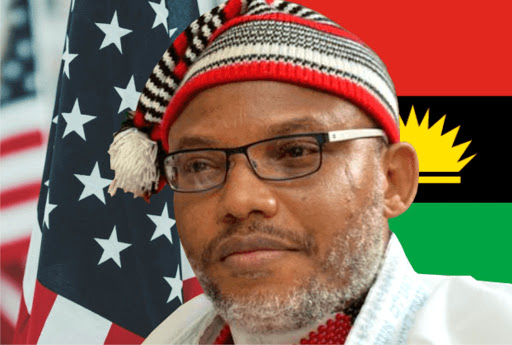
The Federal High Court sitting in Abuja, on Tuesday, dismissed the fresh application the detained leader of the Indigenous People of Biafra (IPOB) Nnamdi Kanu, filed to be released on bail, pending the determination of the charge the Nigerian government preferred against him.
Rather, trial Justice Binta Nyako ordered accelerated hearing of the government’s seven-count charge against him.
Kanu had in the application he filed through his team of lawyers led by Aloy Ejimakor, on February 5, prayed the court to grant him bail on “most liberal terms” owing to his deteriorating health.
Ejimakor had argued that there was no dispute that the IPOB leader has a serious health condition that was confirmed by a federal government-owned hospital.
Specifically, he disclosed that series of tests that were conducted on Kanu, showed that he was suffering from hypertension and acute heart disease.
“Our humble submission is that the medical condition of the defendant speaks for itself and the health challenge persists, despite the treatment offered him by the detaining authority,” Ejimako added.
He maintained that Kanu’s continued detention by the Department of State Services, DSS, posed a threat to his life, adding the freeing the defendant on bail would enable him to effectively prepare his defence to the charge.
Besides, Ejimakor noted that the seeming delay in the prosecution of the case was the fault of the government which he said had repeatedly amended the charge.
On the court’s observation that Kanu once jumped bail, Ejimakor argued that the development had become academic in view of findings and judgements of various courts on the issue.
On its part, FG’s lawyer, Chief Adegboyega Awomolo, SAN, opposed the bail application, insisting that there was no guarantee that Kanu would make himself available for trial, once released from detention.
Awomolo, SAN, told the court that the security agency had been diligent in protecting Kanu’s life.
He urged the court to reject the bail request and order accelerated hearing of the case.
According to the prosecution counsel, Section 161 of the 1999 Constitution, as amended, stipulated that the defendant must prove that the authorities failed to grant him access to quality healthcare at his detention center.
The senior lawyer further contended that there was nothing tangible that was brought before the court to establish an exceptional circumstance that would warrant Kanu’s release on bail.
He said the court had earlier revoked the defendant’s bail after he violated the conditions attached to it.
